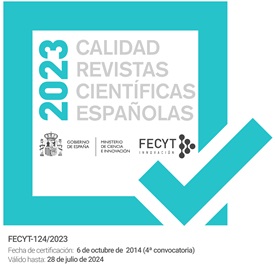La dependencia económica del auditor respecto de su cliente es considerada una amenaza para su independencia. El comité de auditoría puede actuar como salvaguarda, sin embargo, es una medida creada por la empresa auditada y de ella depende que cuente con las características necesarias para ser eficaz. Este trabajo analiza si las empresas gradúan el nivel de independencia del comité de auditoría dependiendo del nivel de dependencia económica de su auditor. Aplicando la técnica de datos de panel a una muestra de empresas españolas cotizadas entre los años 1998 y 2005, los resultados confirman la existencia de una relación significativa entre el nivel de independencia del comité de auditoría y el nivel de dependencia económica del auditor, siendo las empresas con auditores menos dependientes las que forman comités más independientes. Estos resultados suponen una importante contribución a la literatura previa en tanto que aportan evidencia sobre la estrategia seguida por las empresas en el diseño conjunto de mecanismos de garantía de la calidad de la información financiera. Asimismo, se han obtenido teniendo en cuenta algunas de las limitaciones metodológicas que han sido señaladas como principales obstáculos en las investigaciones sobre gobierno corporativo, tales como la endogeneidad y la heterogeneidad inobservable.
Literature states that the auditor's economic bond on a client company could undermine auditor independence. One of the primary functions of an audit committee is to safeguard auditor independence. However, the audit committee is a mechanism within the governance structure of the client firm. Therefore, it depends on this firm that its audit committee possesses the characteristics necessary to be effective. This study analyses whether firms’ decision regarding the degree of independence of the audit committee is determined by the level of economic dependence of their auditors. By mean of a panel data analysis in a sample of Spanish companies between 1998 and 2005, results confirm the existence of a significant relation between the level of independence of the audit committee and the degree of economic dependence of the auditor. Moreover, firms with auditors less economically dependent are those which establish more independent audit committees. These results represent an important contribution to previous literature as provide evidence concerning the strategy followed by firms in the joint design of mechanisms which guarantee the quality of financial reporting system. In addition, they were obtained taking into consideration some of the methodological limitations that have been identified as major obstacles in research on corporate governance, such as endogeneity and unobservable heterogeneity.






